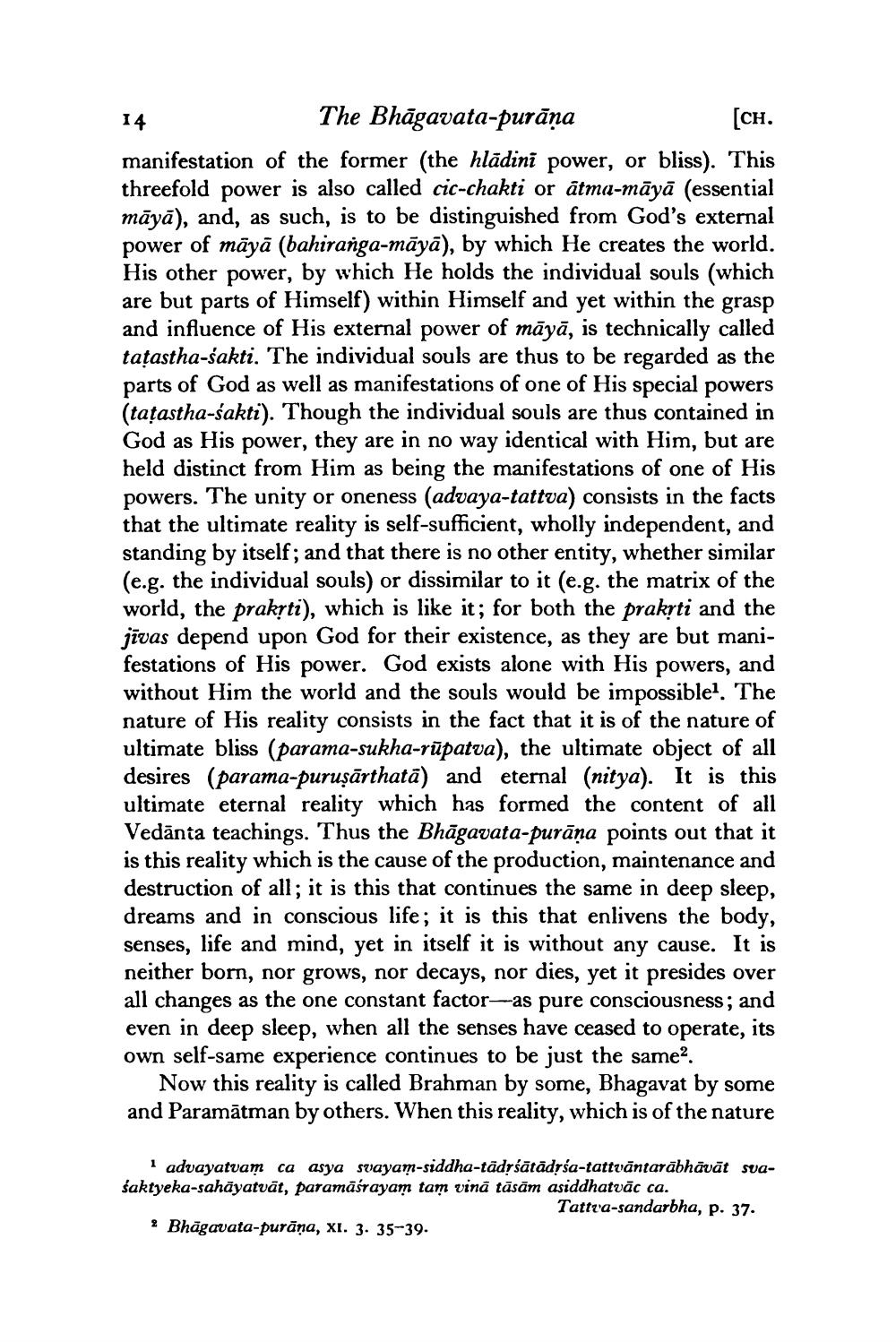________________
14
The Bhāgavata-purāņa
[CH. manifestation of the former (the hlādini power, or bliss). This threefold power is also called cic-chakti or åtma-māyā (essential māyā), and, as such, is to be distinguished from God's external power of māyā (bahiranga-māyā), by which He creates the world. His other power, by which He holds the individual souls (which are but parts of Himself) within Himself and yet within the grasp and influence of His external power of māyā, is technically called tațastha-sakti. The individual souls are thus to be regarded as the parts of God as well as manifestations of one of His special powers (tațastha-sakti). Though the individual souls are thus contained in God as His power, they are in no way identical with Him, but are held distinct from Him as being the manifestations of one of His powers. The unity or oneness (advaya-tattva) consists in the facts that the ultimate reality is self-sufficient, wholly independent, and standing by itself; and that there is no other entity, whether similar (e.g. the individual souls) or dissimilar to it (e.g. the matrix of the world, the prakrti), which is like it; for both the prakrti and the jīvas depend upon God for their existence, as they are but manifestations of His power. God exists alone with His powers, and without Him the world and the souls would be impossible. The nature of His reality consists in the fact that it is of the nature of ultimate bliss (parama-sukha-rūpatva), the ultimate object of all desires (parama-puruṣārthatā) and eternal (nitya). It is this ultimate eternal reality which has formed the content of all Vedānta teachings. Thus the Bhāgavata-purāna points out that it is this reality which is the cause of the production, maintenance and destruction of all; it is this that continues the same in deep sleep, dreams and in conscious life; it is this that enlivens the body, senses, life and mind, yet in itself it is without any cause. It is neither bom, nor grows, nor decays, nor dies, yet it presides over all changes as the one constant factor-as pure consciousness; and even in deep sleep, when all the senses have ceased to operate, its own self-same experience continues to be just the same.
Now this reality is called Brahman by some, Bhagavat by some and Paramātman by others. When this reality, which is of the nature
advayatvam ca asya svayam-siddha-tādrśātādrsa-tattväntarābhāvāt suaśaktyeka-sahāyatvāt, paramāśrayam tam vină tāsām asiddhatvāc ca.
Tattra-sandarbha, p. 37. 2 Bhāgavata-purāna, XI. 3. 35-39.




